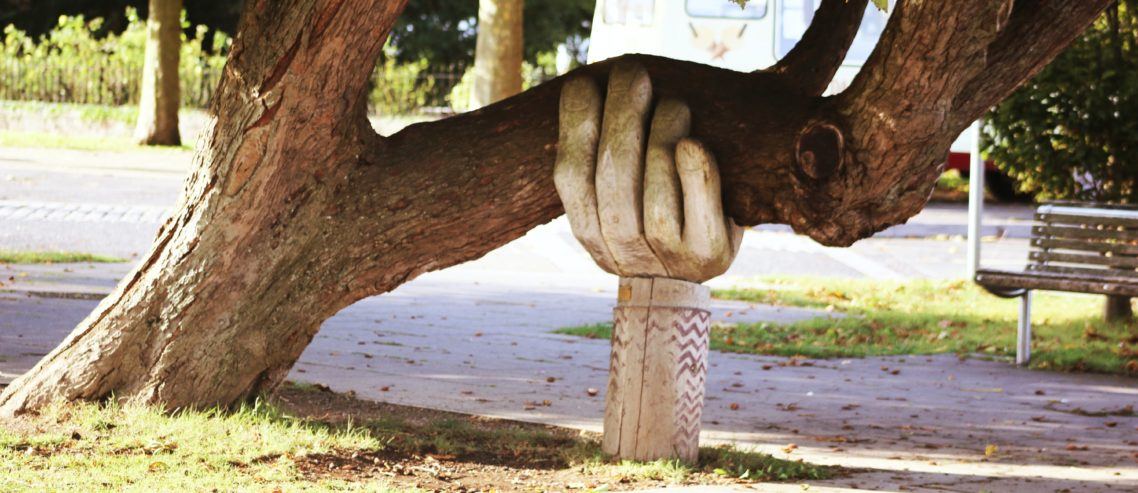Redeeming Transitions
So, you are going through transition. We all are. Some transitions are welcome: marriage, graduation, the birth of a child, or a new job. Many transitions, however, carry an unwelcome feeling: loss, separation, or job termination. A few transitions in life, such as career change, are monumental. Others go without notice such as transitioning from summer vacation to a new school year. Transitions come with angst and fear for some while others greet them with anticipation and hope. Whatever the transition, we can be sure that they matter. Transitions matter in mapping the story of our lives as every event on our personal timeline is a transition. They matter in providing the backdrop to current life situations. Above all, transitions matter to God. He is acutely aware of the transitions we are walking through. In fact, He intends to redeem them.
When we redeem a coupon, we exchange a piece of paper for a value many more times its independent worth. Similarly, transitions can be redeemed.
When given over to God, transitions can be exchanged for greater value than their apparent worth.
Often, the gain we envision out of our welcome transitions is far less than God’s view. Wonderfully, unwelcome transitions possess far more hope than what we first imagine.
Both welcome and unwelcome transitions threaten us with instability. Like a bridge that carries us from one settled shore to another, transitions uproot us. Whatever was normative before is now in our past. Furthermore, our future is far from certain. The instability that ensues is sometimes the only certainty we have. It is important to realize that a myriad of emotions can result as a product of this instability. Anxiety, discouragement, grief, fear, and other strong emotions are all normal and expected during this transitory time. As time marches on, we can take comfort in the reality of a new, settled normal on the other shore. Faith allows a believer to redeem their transitions through the grace given from above. This is wonderful news for the believer who finds themselves in uncertainty between two settled shores.
Jacob, the son of Isaac, found himself in this unsettled state. Following the direction of his mother, he left the settled establishment of his home in pursuit of the home of his uncle Laban. Jacob’s transition was far from welcome. Having deceived his father and enraged his brother, Jacob fled for his life. Genesis 28:10-22 recounts his transitional location in Bethel, between his familiar settled homeland in Beer-sheba and his hopeful new normal in Haran.
Jacob encountered this desperate, stony, transitional location as the sun was setting (Gen. 28:11). Tired from travel, full of anxiety and not being one used to life in the wild, Jacob laid his head on a pillow of rocks and drifted off to sleep. Many of our transitions seem circumstantial and often unfavorable. Through what seems to be chains of events outside of our control, or worse, locations of our own poor making, we find ourselves in an instable, stony place.
While Jacob slept, God met him in a dream. Through a vision, God spoke to Jacob and told him that “the land whereon thou liest, to thee will I give it, and to thy seed … and in thy seed shall all the families of the earth be blessed (vs 13,14).” Out of Jacob’s transitional location the whole world would be blessed. Herein is a key way transitions are redeemed. God wants, through our transitions, to bless others.
Jacob was shocked by the realization that “the Lord is in this place (vs 16).” A great deal of comfort came over him as he realized the circumstances of the backdrop, he found himself in was not the defining characteristic of his existence. Transitions are redeemed when they teach us that the settled shore of the past is not where our identity lies. Often transitions force us to come face to face with what it is that settles us. Is it circumstance? Is it environment? Is it the background things of our lives or is it the central constancy of God’s presence that gives context and meaning to our background?
Rising up in the morning, Jacob “took the stone that he had put for his pillows, and set it up for a pillar, and poured oil upon the top of it (vs 18).”
Transitions are redeemed when they are used to springboard worship. The fact that transitions can springboard worship and are intended to do so, is indeed hopeful.
Since God is the object of true worship and worship is directed toward Him, we understand worship can originate from a variety of launching places. Worship is not discriminatory of welcome or unwelcome transitions. Whatever two shores we find ourselves between, the believer has the opportunity to pile stones up from the stony place they find themselves in and make a pillar for the worship of God. Furthermore, it could be argued the stonier the place, the more faithful the worship.
Lastly, Jacob begins to understand who he is in light of God’s purposes. Long have we understood Jacob to be a man who coveted what he did not have. He fought with his brother to win his birthright and later through conniving, secured the blessing of inheritance from his father. Yet in this transition Jacob said, “…If God will be with me, and will keep me in this way that I go, and will give me bread to eat, and raiment to put on… then shall the Lord be my God (vs 20,21).” Transitions are redeemed when they further define who we are and what we need. God has a way of refining us when our securities have been interrupted through transition.
God wants to redeem our transitions.
He wants to bless others through our transitions. Who are the people we are transitioning with? They are likely a part of the subset of people God wishes to bless through us in our transitions. By blessing others in transition, we model the gospel of love and require Christ to be central to our navigation from one shore to another. “Put on therefore, as the elect of God, holy and beloved, bowels of mercies, kindness, humbleness of mind, meekness, longsuffering; Forbearing one another, and forgiving one another, if any man have a quarrel against any: even as Christ forgave you, so also do ye. And above all these things put on charity, which is the bond of perfectness.” Colossians 3:12-14
He wants to teach us that He defines our location, not your surroundings. Do we resist or welcome transition because of its reflection on us? Have we tied our identity to surroundings or to Him who lives within us? “Lord, thou hast been our dwelling place in all generations.” Psalm 90:1
He wants transition to elicit worship of him. Has transition caused self-focus instead of God focus? “For we have not an high priest which cannot be touched with the feeling of our infirmities; but was in all points tempted like as we are, yet without sin. Let us therefore come boldly unto the throne of grace…” Hebrews 4:15-16
He wants us to separate needs from wants and be settled in him. Have our transitions found footing in God or something else? “…for I have learned, in whatsoever state I am, therewith to be content.” Philippians 4:11
The pattern we see in Jacob’s transition is taking a stony place, using it for a stony pillow and transforming it into a stony pillar. This transformation illustrates a transition redeemed. In like manner, God wishes to redeem our transitions for a value we never imagined possible.
For Further Information:
God’s Comfort
This comforting and inspiring Bible study from InterVarsity Press has been adapted with permission by ACCFS. The study consists of nine lessons and can be done individually, in small groups, and congregationally. Copies of this study can be purchased from the Apostolic Christian Book Store.
Redeeming Transitions Podcast Episodes ![]()
Ted Witzig Jr., interviewed by Matt Kaufmann, speaks to the issue of transitions in a three-part series. Hope is offered as we see how God intends to redeem our transitions.
Change & Transition Sunday School Lessons
Life is full of change. In these Sunday School lessons, students will learn and understand how change and transition can affect us all, and how God wants to redeem these moments for something greater. These lessons are written for different age levels and can be used by teachers to build discussion and understanding around this biblical truth. [ACCFS]





Comments
Leave a Comment